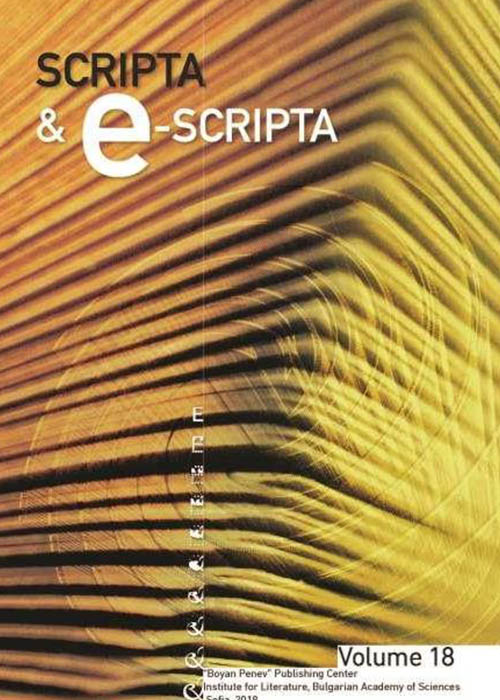Using Handwritten Text Recognition (HTR) Tools to Transcribe Historical Multilingual Lexica
Използване на приложения за разпознаване на ръкописни текстове (HTR) при транскрибиране на многоезични исторически лексикони

- Author(s): Walker R. Thompson
- Subject(s): Digital humanities //
-
Published by: Institute for Literature BAS

- Print ISSN: 1312-238X
- Summary/Abstract:
The paper discusses some results obtained as part of an ongoing project at the Slavic Institute of Heidelberg University to produce automatic transcriptions of an early 18th century trilingual printed dictionary (Fedor Polikarpov’s Leksikon trejazyčnyj) and, on a preliminary basis, of a 17th century trilingual manuscript (Epifanij Slavineckii’s working copy of his Greek–Slavic–Latin dictionary) using the handwritten text recognition (HTR) platforms Transkribus and eScriptorium. It is argued that there are considerable advantages to employing such tools in terms of the simplification and acceleration of work on multilingual edition projects. Moreover, a comparison of our experience working with Transkribus and eScriptorium is given, along with an overview of the practical benefits and challenges of working with each of these platforms.
Journal: Scripta & e-Scripta vol. 21, 2021
-
Page Range: 217-231
No. of Pages: 15
Language: English - LINK CEEOL:
-
Walker R. ThompsonSlavic Institute, Heidelberg UniversityDescription
Walker Thompson read Russian and German as an undergraduate at Magdalen College, Oxford, going on to complete his Master’s in Syriac Studies at Wolfson College in 2019. From 2019–2020, he was an Academic Assistant at the Slavic Institute of Heidelberg University. Since October 2020, he has been continuing his doctoral research on Epifanij Slavineckij’s lexicographical works as a DAAD-GSSP scholar at the Heidelberg Graduate School for the Humanities and Social Sciences (HGGS). His teaching and research interests span a diverse range of topics including digital humanities, graphematics, language contact, early modern lexicography, the history of Church Slavonic, and Eastern Orthodox liturgics.
-
SUBJECT: Digital humanities //KEYWORDS: TRANSKRIBUS // eScriptorium // handwritten text recognition HTR // pre-modern Early modern multilingual lexica //
-